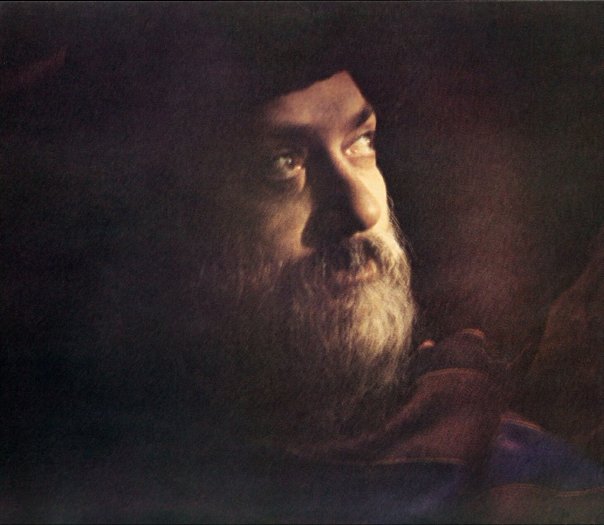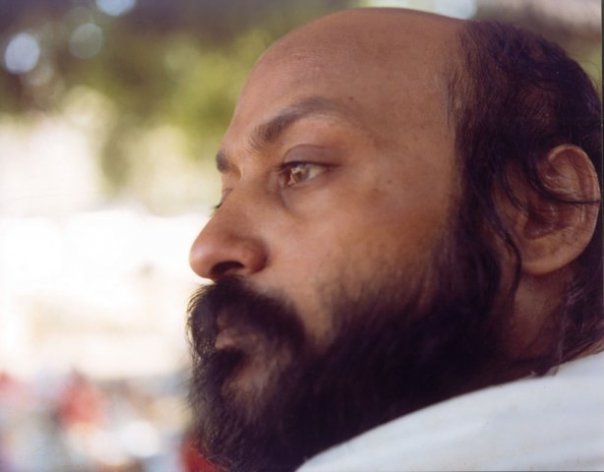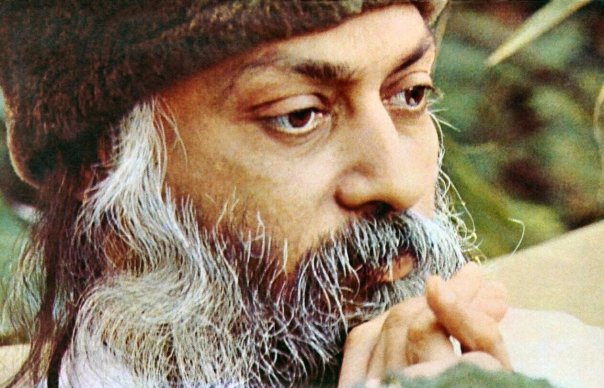Osho Quotes on Dying Consciously
- If you had died in silence, peace, consciously, you would have been amazed to know that it is only the body that is dying, but not you, not the witness. You would have witnessed your own death. Just as others are witnessing from the outside, you would have witnessed it from the inside. If a man dies consciously, then he is also born consciously, because death is one side and birth is another side. Death is the beginning of a new life. Within seconds, you will be entering a new womb. And if you die peacefully, without any disturbance, you will enter a new womb with the same silence, with the same awareness. The nine months in the mother’s womb will not be of unawareness. And the birth out of the mother’s womb will be in full silence and joy, because now you know that neither death matters nor birth; you belong to eternity.
- This time, die consciously. But you have to start right now to live consciously; only then can you die consciously: Even if you can live consciously for a few years, that will be enough. Even a few months or even a few days and if intensity is great even a few minutes are enough to live consciously; then one becomes capable of dying consciously. And to die consciously is to be resurrected into a totally different dimension, the dimension of the divine. I would like all of my sannyasins to die so deeply that they are never born again, so that they can disappear into the cosmos, become part of the whole.
- Unless you become alert and aware in life, unless you change the quality of your living, you will not die consciously. And only a conscious death can bring you to a conscious birth; and then a far more conscious life opens its doors.
- Live consciously, learn consciousness, accumulate consciousness. Become a great flame of consciousness, then, when death comes. you will be able to witness it, you will be able to see it and you will know ‘The body is dying, the ego is dying, but I am not dying because I am the witness.’ That witness is the very core of existence. That witness is what other religions call ‘God’. and what Lieh Tzu. Chuang Tzu call ‘Tao’: the knower, the knowing element, consciousness, awareness, alertness. Start living a conscious life. Do whatsoever you are doing, but do as if you are a witness to it — watch it, silently go on observing it. Don’t get lost into things; remain alert, remain beyond. Start from small things: walking on the road, eating, taking a bath, holding the hand of a friend, talking, listening — small things. but keep alert. You will forget again and again. Pick it up again, find it out again. remember it again. This is what Buddha calls ‘mindfulness’. what Gurdjieff calls ‘self-remembering’. Go on remembering that you are a witness. In the beginning it is arduous, hard, because our sleep is long. We have slept for many lives. we have become accustomed to sleep. we are snoring — metaphysically. It is difficult. but if you try. by and by a ray of alertness will enter in your being. It is possible — difficult, but possible — not impossible. And this is the most valuable thing in life.
- Gurdjieff’s chief disciple, Ouspensky, was dying, but he would not lie down. He continued walking. He was dying, and he was aware that death was just about to come — but he would not lie down. Physicians insisted, persuaded, but he would not lie down. He said, “No, I am going to die walking. I am going to die consciously.” He used even death to create will, and he died walking. He was the first man in the whole history of humanity who died walking — consciously.
- It rarely happens that somebody dies consciously. It happens only to great meditators, who know well the path death will be coming on because in their meditations they have traveled on the path again and again — it is the same path. As they go deep in their meditation the body is left far away, mind is left far away, the heart is left far away; only a beautiful silence — fully alert and conscious — remains. The same happens when you die. If you have been meditating, then death is not a new experience. You will be surprised that in your meditation you have been dying every day, and you have been coming back to life every day. Such a person dies very consciously, so he knows what death is — and such a person remains conscious in the mother’s womb. He is also born consciously. From his very first moment on the earth, he knows all that has passed before in the past life, and he remembers it.
- consciously. you will certainly be able to die consciously — because dying is a phenomenon of life; it takes place in life. In other words, death is the final happening of what you understand life to be. It is not an event that occurs outside of life.
- If you die consciously, totally silent, joyful, ready to go on the new venture, then death is tremendously beautiful. It will reveal something that life has not revealed — it will reveal to you god himself — because death is a door.
- Death is beautiful, as beautiful as life — if you just know how to communicate with death. It is beautiful because it is relaxation. It is beautiful because the person has fallen back into the source of existence — to relax, to rest, to be ready to come back again. A wave rises in the ocean, then falls back into the ocean, then rises again. It will have another day, it will be born again in some other form. And then it falls again and disappears. Death is just disappearing into the source. Death is going to the unmanifested. Death is falling asleep into God. You will bloom again. You will again see the sun and the moon, and again and again till you become a Buddha — till you are capable of dying consciously, till you are capable of relaxing consciously, knowingly, into God. Then there is no coming back. That is utter death, that is ultimate death. The ordinary death is a temporary death; you will be coming back again. When a Buddha dies, he dies forever. His death has the quality of eternity. But even the temporary death is beautiful.
- Once you know yourself, there is no death. Death was only in your ignorance. In your meditative consciousness, death disappears just as darkness disappears when there is light brought in. Meditation brings the light in, and death is found to be the greatest fiction. It appears only from the outside that somebody is dying. From the inside nobody has ever died, and that is where your life source is.
- Only meditation cannot be taken away by anything — not even by death. One can continue meditating while one is dying. One can not remain rich while one is dying — one can remain a meditator. One cannot have power while one is dying, but one can keep silent, one can remain silent. And if you can remain meditative even while death is happening, you have known something which is indestructible; even death cannot destroy it. That’s what life is really. You have known life.
- As you die — if you are dying consciously — you will forget the body, you will forget the mind… just consciousness, and then suddenly the consciousness merges into the whole. That merging with the whole is a thousandfold more beautiful than is possible through any orgasm. But both these things are certainly deeply related. They are one. And anyone who wants to understand death, has to understand sex — or vice versa.
- The moment one becomes conscious of himself, he is no longer a mortal; he becomes an immortal. He has always been an immortal but because of his misunderstanding, he degraded himself into being a mortal, into someone who is going to die. Although the life within you and the consciousness within you is eternal and immortal, still you go on being afraid of death because you see somebody dying every day. And everybody’s death reminds you of your own death.
- People become aware only at the time of death of what they have missed, because death comes like a fisherman, pulling you out of the ocean of life. As you are pulled out of life, suddenly you realize, “My God! I have been alive, and I never became aware of it. I could have danced, I could have loved, I could have sung — but now it is too late.” People become aware only at the time when they are dying, that they have been continuously surrounded by the eternal energy of life, but they never participated in it. Your daily life is your temple, and your religion. Act in awareness, act consciously, and naturally many things will start changing.
- Remember, if you are afraid of death you will be afraid of meditation also. It is a logical corollary. If you are afraid of death you cannot allow yourself to move totally into meditation because meditation is a kind of death, a sort of death. Consciously, voluntarily, you are merging yourself into the whole. You are dying as an individual, as an ego, and becoming one with the egoless existence.
- Drop your fake personality. Grow into your authentic individuality. Live the way existence wanted you to live. Your very life should be so intense and so total that you burn your life’s torch from both ends. In that very intensity you will know that you have touched something of eternity. And if you have known it in your life, in your death you will find a deeper confirmation of the fact. People who live in personality always die unconscious. They have never lived. They don’t know what consciousness is, so before death they become unconscious. That’s why we don’t remember our past lives. You were unconscious, and death happened in your unconsciousness. But if you live consciously, as an individual, then you will die consciously, the way Socrates is dying — so conscious to the last breath. And this memory will be with you in the next life too.
- The bardo is suggestions to the dying person: “Now be silent. Leave this life consciously. Rather than death taking it away from you, relax your hold; don’t be defeated by death, don’t struggle. Just drop all your attachment. This world is finished for you, and this life is finished for you. There is no point in holding on to it; in holding on to it you will be fighting with death. You cannot win, and a very significant possibility will be missed. “Simply let go of everything on your own accord. Relax, and accept death without any antagonism as a culmination of life, as a natural phenomenon. It ends nothing. Remain conscious and watch what is happening — how the body starts becoming more and more distant from you, how the mind starts falling into pieces as if a mirror has fallen and broken into pieces, how your emotions, sentiments, moods… everything that made your life starts disappearing.” It is the end of a dream. That is the fundamental point in bardo, that you have lived a dream that you call life, a seventy-year-long dream. It is coming to an end. You can weep for the spilled milk and miss the opportunity… because within seconds you will be entering into another womb, into another dream.
- To be able to die knowingly is a contradiction in terms. No one can ever die knowingly, consciously, because he remains aware all the time that he is not dying, that something is dying in him but he is not. He keeps watching this separation and ultimately finds that his body is lying away from him, at a distance. Then death turns out to be merely a separation; it amounts to the breaking of a connection. It is as if I were to step out of this house, and the members of this household, unaware of the world outside these walls, were to come to the door and bid me a tearful goodbye, feeling that the man they had come to say goodbye to had died. The separation of the body and the consciousness is death. Because there is this separation, it is meaningless to call it death — it is merely a loosening, a breaking of a connection. It is nothing more than changing clothes. So, one who dies with awareness never really dies, hence the question of death never arises for him. He won’t even call death an illusion. He won’t even say who dies and who does not die. He will simply state that what we called life up to yesterday was merely an association. That association has broken. Now a new life has begun which, in the former sense, is not an association. Perhaps it is a new connection, a new journey.
- So keep in mind, one who dies a conscious death takes a conscious birth in the next life — that becomes the other part of his dying. And the life of one who dies and takes birth consciously functions on a totally different plane. For the first time, he is able to grab hold of the entire meaning of life, of the whole purpose of life, of the heights and depths of life, precisely and consciously. He is able to grasp the whole truth of life.
- Only the one who has known his self during his lifetime will remain as Brahma, the ultimate one, when his body drops. Someone who has known his whole life that he is the body, he will become unconscious while dying — he will go totally unconscious. Very few people die consciously. Death happens in a kind of sleep, in an unconscious state. You are not conscious while dying, otherwise you would be able to remember your previous death. Whatever happens in unconsciousness does not remain in the memory. That is why people do not know that they have been born many times and they have died many times, because whenever they died they were unconscious. And whosoever dies unconscious is born unconscious, because birth and death are two polarities of the same thing. A person dies here, this is one end of the phenomenon; then the same person enters a womb somewhere, that is the other end. Death and birth are two sides of the same coin.
- Change the emphasis, turn your attention around. If you become concerned with death, your life comes to be revealed to you for the first time, because the moment you become at ease with death you have gained a life that cannot die. The moment you have known death, you have known that life which is eternal. Death is the door from the superficial life, the so-called life, the trivial. There is a door. If you pass through the door you reach another life — deeper, eternal, without death, deathless. So from so-called life, which is really nothing but dying, one has to pass through the door of death; only then does one achieve a life that is really existential and active — without death in it. But one should pass this door very consciously. We have been dying so many times, but whenever someone dies he becomes unconscious; you are so afraid of death that the moment death comes to you, you become unconscious. You pass through the door in an unconscious state of mind. Then you are born again, and the whole nonsense begins again, and again you are not concerned with death. One who is concerned with death rather than with life begins to pass the door consciously. This is what is meant by meditation: to pass the door of death consciously. To die consciously is meditation. But you cannot wait for death; you need not, because death is always there: it is a door that exists inside you. It is not something that is going to happen in the future, it is not something outside of you that you have to reach, it is inside you, a door.



